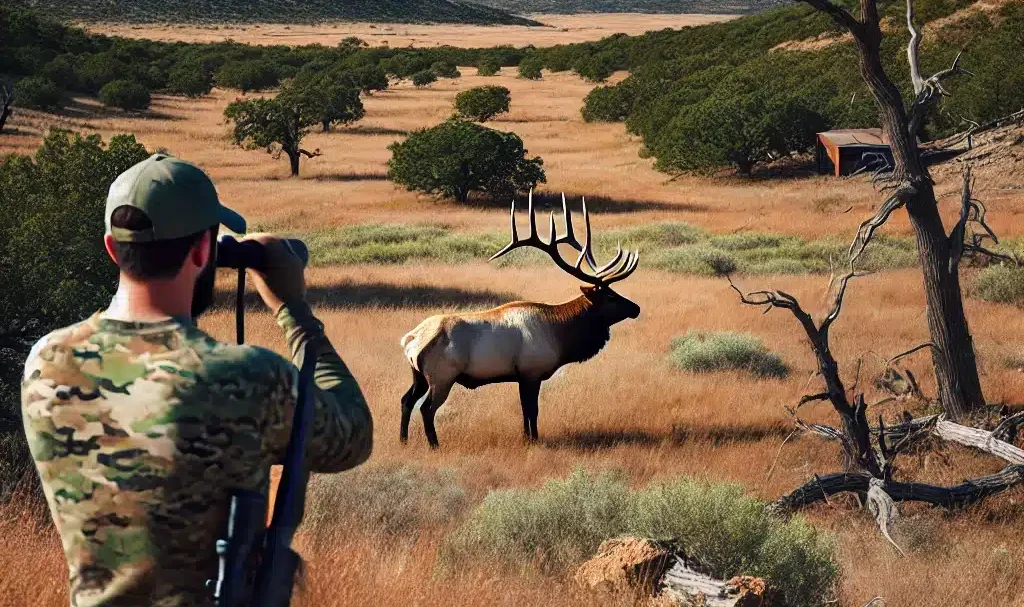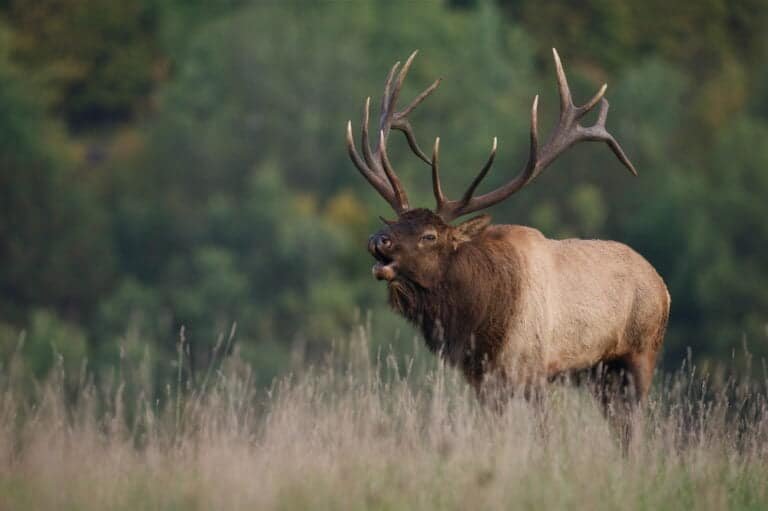Ethical Hunting Practices: 5 Reasons Why I Just Don’t Care
The age-old hunting tradition has evolved significantly, reflecting changing societal values and a growing awareness of our impact on the natural world. Ethical hunting practices have emerged as a cornerstone for responsible hunters who seek to balance their love for the sport and their commitment to conservation. At its core, ethical hunting encompasses a set of principles and behaviors that prioritize the well-being of wildlife populations and ecosystems.

Ethical hunting practices encompass a wide range of behaviors and principles that guide hunters in pursuing game in a manner that respects the animals being hunted and their natural habitats. Central to ethical hunting is the concept of “fair chase.” Fair chase gives animals a reasonable chance to escape or elude hunters, ensuring they are not subjected to unnecessary stress or suffering.
Moreover, ethical hunters abide by selective harvesting principles, which promote responsible selection based on species’ population dynamics, ensuring sustainable management practices. By targeting specific individuals within populations for harvest – such as mature males or surplus females – hunters contribute to maintaining healthy population balances while minimizing negative ecological consequences.
Importance of Ethical Hunting for Conservation and Sustainability
Ethical hunting is essential in conservation efforts and contributes significantly to long-term sustainability. By embracing ethical practices, hunters actively participate in wildlife management, helping preserve biodiversity and maintaining healthy ecosystems.
One crucial way ethical hunting contributes to conservation is through population control. Well-regulated hunting seasons can help manage animal populations within sustainable limits, preventing overpopulation that could lead to habitat degradation and increased competition for resources among species.
Furthermore, revenue generated from licenses, fees, and taxes associated with ethical hunting activities directly supports conservation initiatives such as habitat restoration projects or research programs focused on understanding wildlife biology. This funding mechanism ensures that these activities can continue effectively without relying solely on government resources.
Ethical hunting not only upholds a responsible approach to wildlife management but also provides invaluable support for conservation and the long-term preservation of our natural heritage. By adhering to ethical hunting practices, hunters honor the traditions of their sport and become stewards of the environment, helping create a harmonious relationship between humans and wildlife.
Understanding the Principles of Ethical Hunting

Fair Chase Principle
The Fair Chase Principle is rooted in the belief that hunting should be conducted in a manner that respects the instincts and abilities of the animals. This principle emphasizes the pursuit of game in a fair and sportsmanlike manner, ensuring a level playing field between hunter and prey. The origins of this principle can be traced back to the early 20th century when hunters recognized the need to establish guidelines for ethical hunting practices.
Respecting the animal’s instincts and abilities is at the core of the Fair Chase Principle. It means giving game animals a reasonable chance to escape or evade being hunted.
This involves refraining from using unfair advantages such as technology that gives hunters an unfair advantage over their prey, such as drones or electronic devices that enhance tracking abilities. The goal is to engage in a hunt where both the hunter and the animal have an equal opportunity, relying on their inherent skills and knowledge.
Selective Harvesting Principle
The Selective Harvesting Principle focuses on responsible selection regarding game species and individuals. This principle acknowledges that hunting plays a crucial role in wildlife management by regulating populations for ecological balance and reducing human-wildlife conflicts.
Responsible hunters ensure they target specific species based on scientific data and population management goals set by wildlife agencies. Within this principle, balancing population management with ecological integrity is paramount.
Hunters must consider factors such as age, sex, reproductive status, genetic diversity, and overall population health when selecting individuals for harvest. By targeting surplus individuals within populations while maintaining genetic diversity, hunters contribute to maintaining healthy ecosystems.
Respect for the Environment Principle
The Respect for the Environment Principle recognizes that hunting can have environmental impacts beyond harvesting game animals. Ethical hunters prioritize minimizing negative effects on ecosystems and habitats while engaging in their pursuit. This principle encourages practicing Leave No Trace principles, which means leaving the natural environment as undisturbed as possible.
Minimizing negative impacts on ecosystems and habitats involves several considerations. Hunters must be mindful of their actions to avoid damaging vegetation or sensitive habitats, such as wetlands or nesting areas.
They should also ensure proper waste disposal by carrying out what they bring in, including cartridge casings and packaging materials. Respecting the environment also includes being aware of how hunting activities may disrupt non-target species and employing caution to minimize accidental harm to wildlife not intended for harvest.
By adhering to these principles, ethical hunters demonstrate their commitment to preserving ecological balance while engaging in a time-honored tradition. Understanding the Fair Chase Principle, Selective Harvesting Principle, and Respect for the Environment Principle provides a strong foundation for responsible hunting practices that contribute to sustainable wildlife populations and conservation efforts.
Pre-Hunt Preparation: Ensuring Ethical Practices

Knowledge and Skill Development
Before embarking on a hunting expedition, ethical hunters must acquire comprehensive knowledge and develop the necessary skills. One of the first steps in this process is deeply understanding local laws, regulations, and seasonal restrictions. By familiarizing themselves with the specific regulations of their hunting area, hunters can ensure they comply with legal requirements. This includes knowing bag limits, licensing obligations, and reporting responsibilities to maintain accountability. Furthermore, continuous marksmanship, tracking, and fieldcraft training are crucial for ethical hunters.
Developing proficiency in these areas ensures a higher level of safety and increases the chances of making ethical shots that result in quick and humane kills. By honing marksmanship skills through regular practice at shooting ranges or simulations, hunters can improve their accuracy while minimizing the risk of injuring an animal without achieving an immediate kill.
Equipment Selection
To uphold ethical practices during a hunt, careful consideration should be given to selecting appropriate firearms or archery equipment. Hunters must choose weapons that align with their skill level while also suited for the specific game they intend to pursue.
For firearms enthusiasts, selecting firearms that offer adequate stopping power yet maintain manageable recoil is crucial to ensure accurate shots that minimize unnecessary suffering. Ethical hunters who prefer archery must carefully choose bows and arrows designed for effective kills without causing undue suffering.
Additionally, selecting non-toxic ammunition or broadheads is vital in minimizing environmental impact. Non-toxic alternatives reduce contamination risks associated with lead-based ammunition while ensuring that wildlife-consuming scavenged remains do not suffer from lead poisoning.
To make informed decisions, hunters should conduct thorough research, consult with experienced hunters or professionals at sporting goods stores, and seek advice from local conservation agencies. This way, they can ensure that their equipment choices are ethically sound and align with the principles of conservation and sustainability.
Ethical hunting requires diligent pre-hunt preparation. By acquiring knowledge about local regulations and seasonal restrictions and continuously improving marksmanship skills and fieldcraft techniques, hunters can maximize safety while minimizing the risk of causing unnecessary animal harm.
Additionally, selecting appropriate firearms or archery equipment and opting for non-toxic ammunition or broadheads demonstrates a commitment to ethical hunting practices. Such preparation enhances the overall hunting experience and contributes to preserving wildlife populations and their habitats.
Respecting Animal Welfare
When engaging in ethical hunting practices, respecting animal welfare becomes paramount. It involves minimizing the suffering of animals through accurate shot placement. Responsible hunters understand the importance of taking ethical shots that result in quick and humane kills. This means aiming for vital organs to ensure a swift and efficient harvest.
By prioritizing accuracy and marksmanship, hunters can avoid causing unnecessary pain or distress to their quarry. Furthermore, ethical hunters actively avoid unnecessary risks that could lead to prolonged suffering for the animal.
This includes refraining from taking shots at unrealistic distances or angles, possibly resulting in non-lethal hits or injuries without immediate follow-up. It is crucial to exercise patience and ensure a clean kill rather than rushing a shot that may cause undue suffering.
Following Legal Requirements
Adhering to legal provisions is an integral part of ethical hunting practices. Hunters must know local regulations, including bag limits, licensing requirements, and reporting obligations.
These rules are put in place to safeguard wildlife populations and maintain a healthy balance within ecosystems. Additionally, ethical hunters respect private property rights by obtaining permission before hunting on privately owned land.
This demonstrates consideration for landowners’ rights while fostering positive relationships between hunters and land stewards. By diligently following legal requirements, hunters contribute to sustainable conservation efforts while upholding their moral obligations.
Minimizing Disturbance to Non-Target Species
Maintaining an ecological perspective is crucial during hunts to minimize disturbance to non-target species within the environment. Ethical hunters actively cultivate awareness of their surroundings to prevent accidental harm to non-game animals. Understanding different species’ habits and habitats enables them to make informed decisions while pursuing their intended quarry.
Taking precautions not to damage vegetation or disturb sensitive habitats is another essential aspect of ethical hunting behavior. Hunters are mindful of their movements, avoiding unnecessary disturbances to the natural environment.
This includes being cautious about trampling vegetation, disturbing nesting sites, or causing erosion. Ethical hunters demonstrate a commitment to conservation and responsible stewardship by mitigating their impact on the broader ecosystem.

Conclusion
Ethical hunting revolves around respecting animal welfare, following legal requirements, and minimizing disturbance to non-target species. By prioritizing accurate shot placement and avoiding unnecessary risks that may cause prolonged suffering, hunters become advocates for humane practices in the field. Adhering to bag limits licensing and obtaining permission before hunting on private land showcases respect for regulations and landowners’ rights.
Minimizing disturbance to non-target species by being aware of surroundings and taking precautions ensures that ethical hunting remains harmonious with ecological integrity. By embracing these principles of ethical hunting practices, individuals participate in a larger conservation effort to foster sustainable wildlife populations and preserve natural habitats.
Ethical hunters understand their role as stewards of the environment and recognize that responsible hunting is an ancient tradition and a vital component of modern wildlife management efforts. Through thoughtful actions in the field, hunters can contribute positively to conservation efforts while responsibly enjoying the timeless pursuit of game animals.






